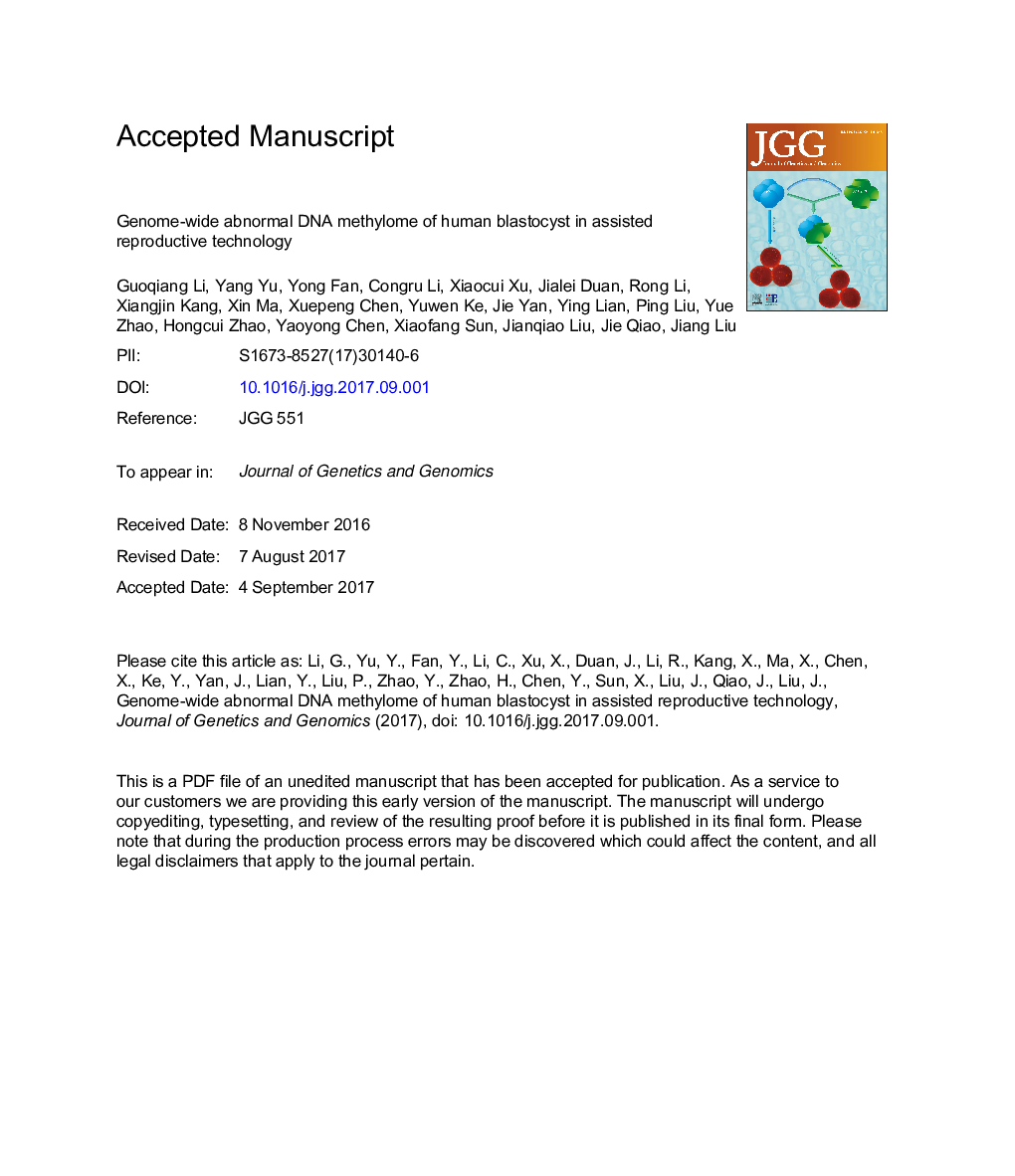| Article ID | Journal | Published Year | Pages | File Type |
|---|---|---|---|---|
| 8626327 | Journal of Genetics and Genomics | 2017 | 25 Pages |
Abstract
Proper reprogramming of parental DNA methylomes is essential for mammalian embryonic development. However, it is unknown whether abnormal methylome reprogramming occurs and is associated with the failure of embryonic development. Here we analyzed the DNA methylomes of 57 blastocysts and 29 trophectoderm samples with different morphological grades during assisted reproductive technology (ART) practices. Our data reveal that the global methylation levels of high-quality blastocysts are similar (0.30 ± 0.02, mean ± SD), while the methylation levels of low-quality blastocysts are divergent and away from those of high-quality blastocysts. The proportion of blastocysts with a methylation level falling within the range of 0.30 ± 0.02 in different grades correlates with the live birth rate for that grade. Moreover, abnormal methylated regions are associated with the failure of embryonic development. Furthermore, we can use the methylation data of cells biopsied from trophectoderm to predict the blastocyst methylation level as well as to detect the aneuploidy of the blastocysts. Our data indicate that global abnormal methylome reprogramming often occurs in human embryos, and suggest that DNA methylome is a potential biomarker in blastocyst selection in ART.
Keywords
Related Topics
Life Sciences
Biochemistry, Genetics and Molecular Biology
Developmental Biology
Authors
Guoqiang Li, Yang Yu, Yong Fan, Congru Li, Xiaocui Xu, Jialei Duan, Rong Li, Xiangjin Kang, Xin Ma, Xuepeng Chen, Yuwen Ke, Jie Yan, Ying Lian, Ping Liu, Yue Zhao, Hongcui Zhao, Yaoyong Chen, Xiaofang Sun, Jiang Liu,
